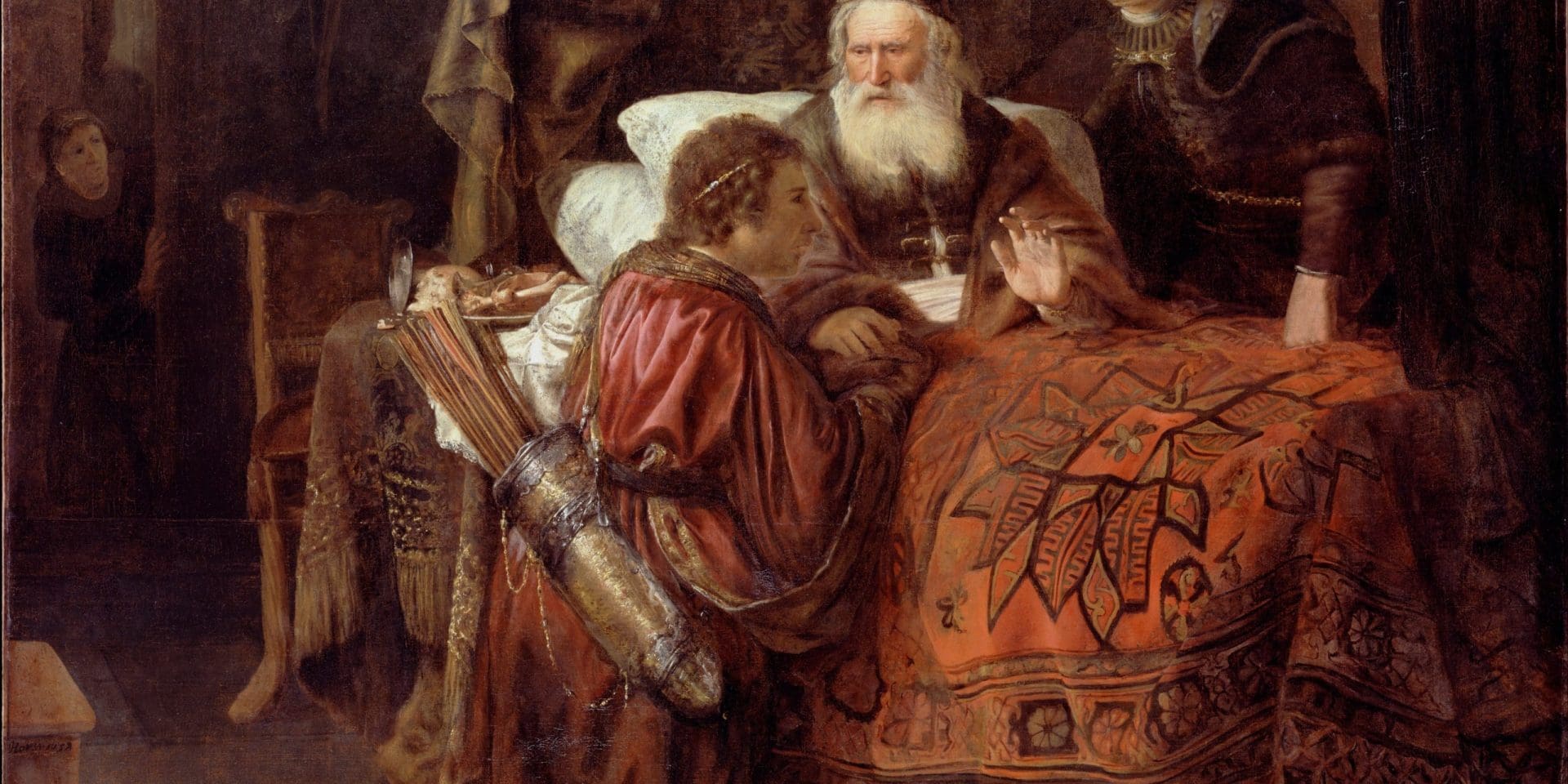With failing vision, the elderly Isaac inadvertently blesses his younger son Jacob rather than the intended recipient, Esau (his firstborn). And he declares over him first a promise of agricultural prosperity: “May God give you of the dew of heaven, of the fatness of the earth, and plenty of grain and wine” (Genesis 27:28 NKJV). And then a promise of lordship: “Let peoples serve you, and nations bow down to you. Be master over your brethren, and let your mother’s sons bow down to you” (v.29a) And finally, to connect this patriarchal blessing with the Abrahamic covenant, Isaac declares, “Cursed be everyone who curses you, and blessed be those who bless you!” (v.29b).
When Esau learns that all of this has been promised to Jacob, he bitterly wails and laments, and demands a blessing from his father. While there is a blessing given to Esau at this point, and while the first part of it appears to be identical to Jacob’s blessing in some translations of the Bible, it is, in fact, the opposite of what was promised to his younger brother. For example, a few English translations of the Bible (e.g., KJV, NKJV, ASV) render the Hebrew in the following way: “Behold [Esau], your dwelling shall be of the fatness of the earth, and of the dew of heaven from above” (Genesis 27:39 NKJV). However, the grammatical elements present in the Hebrew text means it should be read this way: “Behold, your dwelling shall be away from the fatness of the earth, and away from the dew of heaven.” So, “since Esau’s place is away from this and away from that, Esau will not inherit the Land. Whatever his blessing, it will be away from the Land, he will not be the inheritor of [it] (Jacob will be).”[1]
“Behold, away from the fatness of the earth shall your dwelling be, and away from the dew of heaven on high.”
Genesis 27:39
Isaac, then, continues his blessing of Esau and makes three specific prophecies regarding his nation Edom (Genesis 27:40). The first is: “By your sword you shall live.” In other words, “he will sustain himself by plunder, and he will live the life [of] a marauding dwelling nation. One example of the fulfillment of this is in Numbers 20:14-21.”[2] The second prophecy is: “And you shall serve your brother” Jacob. This also came to pass since “Edom was defeated by Saul (I Sam.14:47) and then subjugated by David (II Sam. 8:14). There was [also] a failed revolt under Solomon (I Kings 11:14-22). Edom [did rebel against] Joram but was subdued again by Amaziah (II Kings 14:7; II Chron. 25:11-19).”[3] The third prophecy Jacob made was: “And it shall come to pass, when you become restless, that you shall break his yoke from your neck. As previously mentioned, “This break happened first under Joram (II Chron. 21:8-10) and then under Ahaz (II Kings 16:6, II Chron. 28:16-17). In subsequent history, when the Jews went into Babylonian captivity, the Edomites left their territory at Mount Seir in the Trans-Jordan and moved into the southern part of Judah, where they became known as Idumeans. In addition, later these Idumeans were conquered by one of the descendants of the Maccabees, John Hyrcanos, who conquered them in 129 B.C., forcibly converted them to Judaism, and then incorporated Idumea into the Jewish Judean State. Eventually, these converted Idumeans produced the dynastic rule of the House of Herod.”[4]

Ryan Hembree is a daily co-host, speaker, and writer of Bible Discovery. He also hosts a YouTube channel that shows the unity of the Bible and how science and Scripture fit together. Ryan also has an honorary Masters of Ministry in Creation Science from Phoenix University of Theology.






